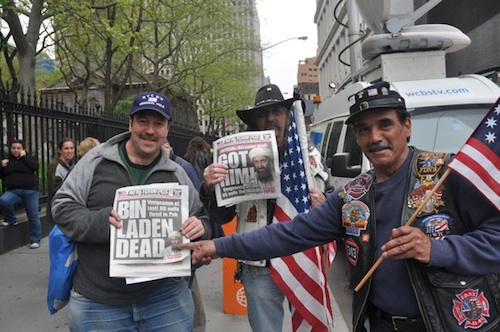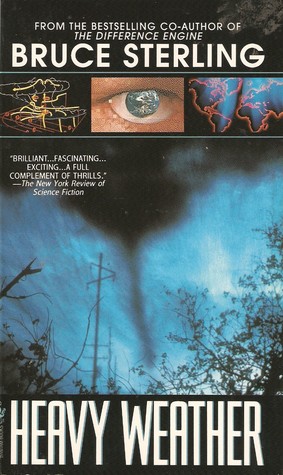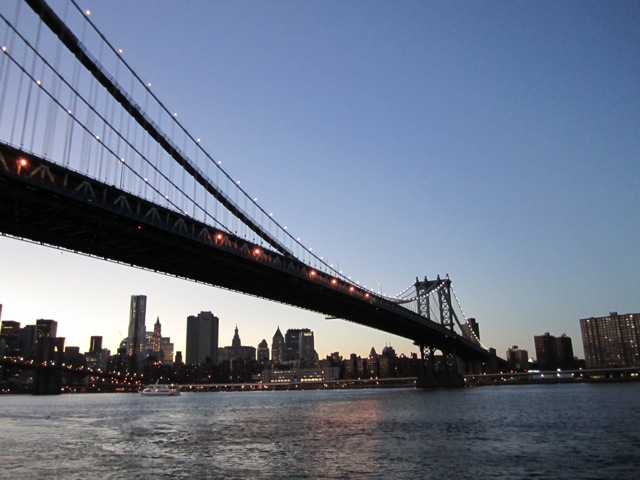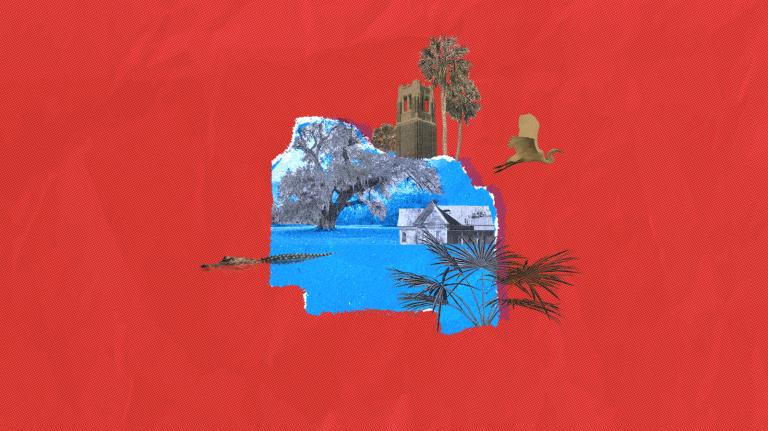 This is not what “victory” looks like. Victory is everyday New York.Photo: Sarah GoodyearFor New Yorkers, the 9-11 attack was personal. For weeks after the towers came down, the public spaces of our city were filled with heart-breaking reminders of the event: Walls covered with the pictures of those who never came home. Firehouses draped in purple-and-black bunting. Union Square packed with debate and outrage, flowers and candles. And always the smell, that sickening aroma of smoke and chemicals and death.
This is not what “victory” looks like. Victory is everyday New York.Photo: Sarah GoodyearFor New Yorkers, the 9-11 attack was personal. For weeks after the towers came down, the public spaces of our city were filled with heart-breaking reminders of the event: Walls covered with the pictures of those who never came home. Firehouses draped in purple-and-black bunting. Union Square packed with debate and outrage, flowers and candles. And always the smell, that sickening aroma of smoke and chemicals and death.
And yet: It was not all sorrow. I will never forget standing on Houston Street on Sept. 12 watching dump trucks filled with rubble driving past, one after the other after the other, as people cheered, knowing that the rebuilding had already begun. I will never forget the kindnesses of strangers, of all faiths and nationalities. I will never forget that for the first time in my life as a New Yorker, the rest of the country praised us rather than vilifying us. And how the city organized itself and started healing itself, even when the wound was still fresh.
One of the things that Osama bin Laden was attacking when he attacked New York was the entire idea of what makes this city, or any city, great. He was attacking the very notion of the cosmopolitan — the urban world in which difference not only survives but thrives.
A great city like New York is by its nature a contradiction of the kind of orthodoxy that bin Laden fought for. Here, women and men of all different races and religions and colors sit together, jostle past each other, and strive together. They do so for the most part in peace.
This is part of what bin Laden sought to destroy. The creative energy and innovative thinking that arises in a free city enrages people like him.
But he didn’t destroy us. Yes, he managed to inflame civil rights abuses by our government. His actions catalyzed terrible wars. And the jingoism that arose in response to the attacks revealed the ugliest face of this country.
Still, New York City is still here, and all the freedom that it represents — not only to America, but to the world.
Today I went down to Ground Zero, drawn to the place I have visited so many times since that day in 2001. I had no wish to celebrate bin Laden’s death — I am no celebrator of death in general, and have very mixed feelings about the way this one came to pass — but this is part of my city’s story, and I wanted to be there, if only for a few minutes.
I found a circuslike scene in which newscasters and print reporters were elbowing each other aside to interview “colorful” subjects. A drunken man waved a POW/MIA flag and tried, with limited success, to work up a chant of “U.S.A.! U.S.A.!” A vendor hawked lurid photo albums of the disaster (those have been around for years, and I have always hated them). Tourists posed in front of memorial bouquets and smiled vapid smiles for the camera.
It wasn’t pretty, and it wasn’t a fitting remembrance of what happened that day almost 10 years ago.
I found a better memorial on the subway going home to Brooklyn. I rode in a car full of people of all ages, on their way to and from work or errands — people from Europe and South America and India and Africa and China. Regular folks going about their business, living their lives. New Yorkers.
We’re still here.



